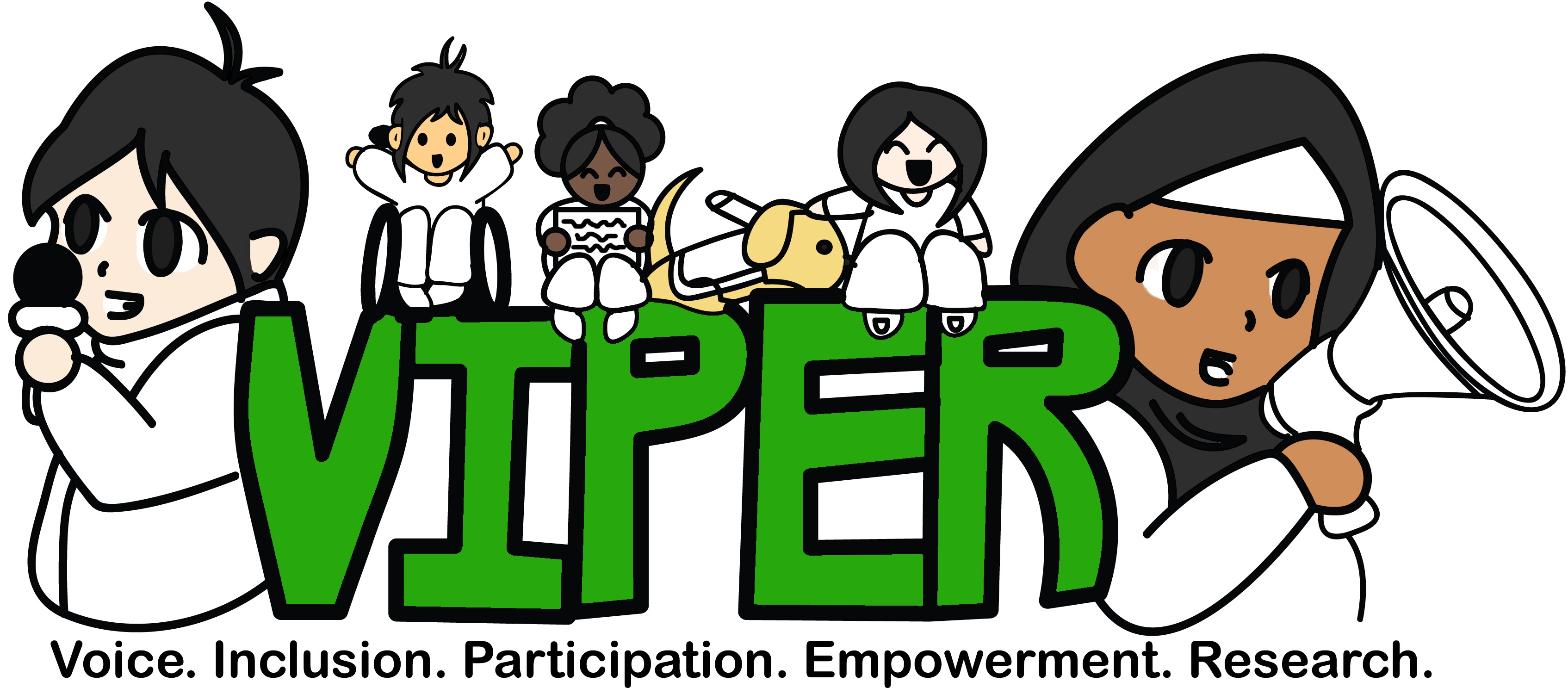The VIPER Project: involving young disabled people in research
The VIPER Project: involving young disabled people in research
By Pamela Shaw

VIPER is a three-year research project funded by the Big Lottery Fund to explore the most effective ways of enabling young disabled people’s participation in the development of services in England. The project is delivered by a partnership consisting of the National Children’s Bureau (NCB) Research Centre, the Council for Disabled Children, the Alliance for Inclusive Education, and the Children’s Society.
VIPER aims to:
- explore the ways in which young disabled people are currently involved in decisions about services
- explore the impacts and benefits of young disabled people’s participation
- identify good practice and understand what works in supporting participation
- develop tools and guidance to support young disabled people’s participation in decisions about services.
At the heart of the project is a group of 16 young disabled people, aged 12 to 22, from across England. They meet regularly to develop their research skills and to advise the project team. As well as this, they participate directly in the research, for example through conducting fieldwork interviews and focus groups, developing surveys and analysing data. They have also attended workshops on identity, the social model of disability and disability rights.
VIPER stands for Voice, Inclusion, Participation, Empowerment, Research – a name chosen by the young researchers to reflect what they hope the project will achieve. The young researchers are passionate about the importance of their involvement in the project:
“By getting involved it’s showing people that we are able to do what other people can do. Also, by helping to plan the services it’s getting [young disabled people] involved in what essentially will affect us.”
“I think it’s important to ask young disabled people about their views on services because services need to be accessible to all people… so everyone can use those services.”
“Young people have a voice too. It’s really important that they give us a say.”
A key area of learning for the project team has been how to make research relevant and accessible to the young researchers. This has involved developing skills in translating research processes and concepts and adopting a flexible approach to research design in order to meet the needs of the group and ensure meaningful participation, for example building in training on key research concepts and postponing decisions about certain activities to enable the young researchers to be involved.
Young people’s participation in this project has also increased project partners’ knowledge and understanding of participatory research, and developed capacity in making research accessible. It has also led to valuable learning about maintaining rigour in research whilst at the same time ensuring meaningful participation.
While making research language, processes and analysis accessible has of course been a key challenge, other challenges have been of a more practical nature, for example fitting VIPER activities around young people’s other commitments, not to mention the logistics associated with ensuring all young researchers were able to participate in fieldwork when case study sites (and young researchers) were scattered across the country.
Initially there was some scepticism from the young researchers about the extent to which they would actually be involved. This has been overcome by keeping them informed of project developments, ensuring they can see progress and understand the impact of their participation in the project, and by responding to requests about their skills development.
However, project successes such as young researchers’ full involvement in the fieldwork have far outweighed the challenges. The young people have identified a range of new skills and experiences that they have gained, including disability rights, critically assessing participation work, interview skills, group work, communication, and independence skills:
“The project and the opportunity has broadened our minds about what participation is and how people can be included and what disabled people can do.”
“… has given us an understanding of the need to speak to more people to get the full picture and that there will be multiple viewpoints on the same issue.”
There has been a high level of external interest in the project, reflected in the number of people signed up to the project newsletter and the emergence of unexpected opportunities, both for the young researchers to develop skills and experiences, and to promote the project at events, for example at an NCB conference on children and young people’s participation and to students at University College London.
For more information, to sign up to receive e-bulletins and to access a range of project partner resources, visit www.councilfordisabledchildren.org.uk/viper
Contact: Pamela Shaw (Senior Development Officer – Participation)
Email: pshaw@ncb.org.uk
Tel: 020 7833 6853